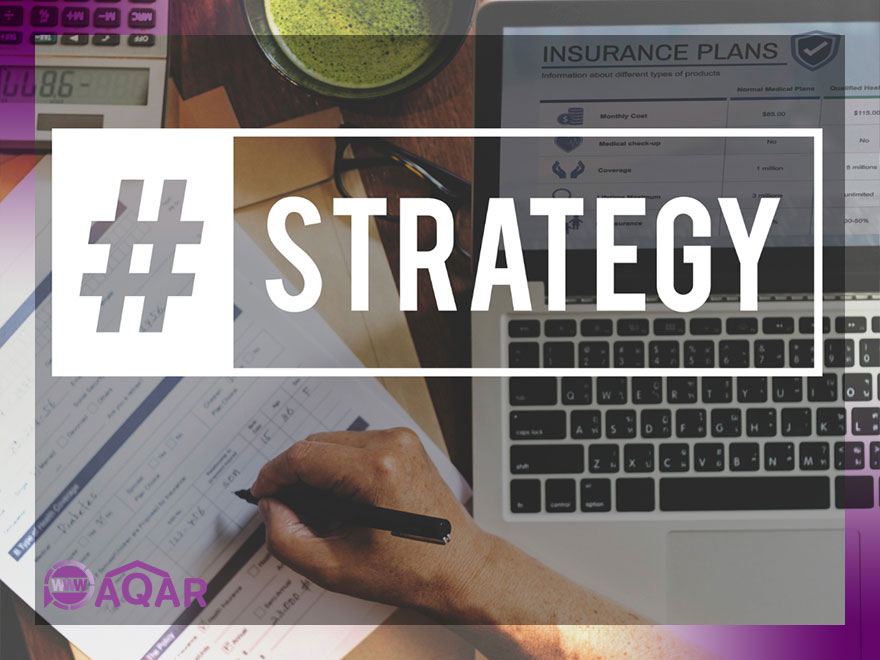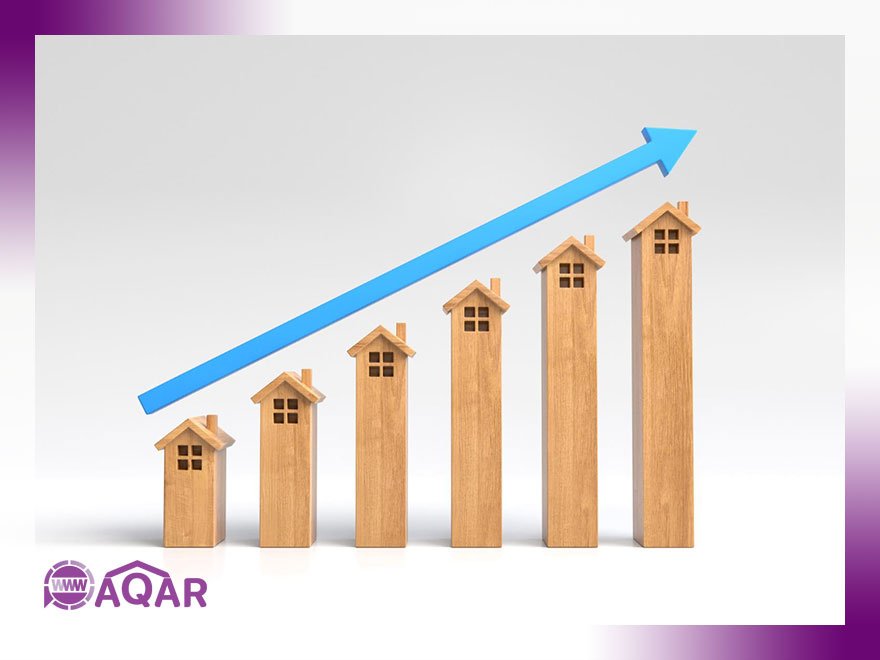In a market with over 2 million active real estate agents competing for the same clients, your brand isn’t just marketing—it’s survival. While 97% of homebuyers start their search online, they’re not just looking for properties—they’re looking for a real estate professional they can trust. Building a real estate brand that cuts through the noise and attracts your ideal client requires more than a professional headshot and business cards.
The statistics tell a compelling story: agents with strong real estate brands generate 23% more leads than their unbranded competitors and command 15-20% higher commission rates. In today’s competitive market, successful real estate branding isn’t optional—it’s the difference between struggling for scraps and building a thriving real estate business that generates consistent referrals and repeat business.
This comprehensive guide will walk you through every aspect of building a memorable real estate brand, from defining your unique value proposition to scaling your influence across multiple markets. Whether you’re a new real estate agent looking to establish your presence or an experienced real estate professional ready to formalize your brand strategy, you’ll discover actionable strategies, specific tools, and measurable tactics that transform your real estate services into a recognized and trusted estate brand.
Why Building a Real Estate Brand is Critical in Today’s Market
The real estate industry has never been more competitive. With over 2 million active real estate agents in the United States alone, differentiation through strategic real estate branding has become essential for survival, let alone success. The days when local expertise and a friendly smile were enough to build a sustainable real estate business are long gone.

Strong real estate brands consistently outperform their competitors across every meaningful metric. Research shows that real estate agents with cohesive brand identities increase their lead generation by 23% and improve client retention rates significantly compared to other real estate agents who rely solely on traditional marketing methods. More importantly, branded real estate professionals command 15-20% higher commission rates than their non-branded competitors, as clients perceive greater value in working with an established, professional real estate brand.
The shift toward digital-first home buying has amplified the importance of a strong personal brand. According to the National Association of Realtors, 97% of homebuyers use the internet during their home search process, with 51% actually finding their home online. This means your real estate brand often makes its first impression through your professional website, social media channels, or property listings before you ever meet potential clients face-to-face.
Building a successful real estate brand creates multiple competitive advantages that compound over time. A memorable brand name and consistent brand image build trust and credibility with prospective clients, leading to higher-quality leads and more referrals from satisfied clients. Real estate agents with strong personal brands also attract better partnership opportunities with mortgage brokers, home inspectors, and other real estate professionals, creating a network effect that accelerates business growth.
The long term success of your real estate business depends on your ability to create an emotional connection with your target audience. In a commodity market where many clients see real estate services as interchangeable, your brand’s personality and brand values become the primary differentiators that influence buying decisions. Real estate brands that invest in consistent messaging, professional marketing materials, and strategic positioning build sustainable competitive advantages that protect against market fluctuations and new competition.
Foundation Elements of a Strong Real Estate Brand
Every memorable real estate brand starts with three fundamental pillars: a clear unique value proposition, a distinctive visual identity, and consistent messaging that resonates with your target audience. These essential elements work together to create a cohesive brand experience that potential clients recognize and trust across all touchpoints, from your business card to your professional website.

The most successful real estate brands in the industry—from powerhouse franchises like Keller Williams and RE/MAX to individual agents who dominate their local markets—all share common characteristics in how they approach these foundational elements. They understand that effective branding goes far beyond a real estate logo or memorable brand name; it’s about creating a comprehensive brand story that communicates expertise, builds relationships, and generates leads consistently over time.
Defining Your Unique Value Proposition
Your unique value proposition is the cornerstone of your personal real estate brand—it’s what makes you one of a kind in a crowded marketplace. Start by identifying your specific area of expertise within the real estate space. Are you the go-to real estate agent for luxury homes, the trusted advisor for first time buyers, the commercial property specialist, or the expert who helps real estate investors maximize their portfolios?
The key to developing a compelling unique selling proposition lies in analyzing market gaps in your specific area. For example, if your local market lacks tech savvy agents who can effectively serve millennial buyers who prefer virtual tours and digital communication, that represents a clear positioning opportunity. Similarly, if most agents in your real estate niche focus on quick transactions, you might differentiate yourself through extensive market knowledge and white-glove service that justifies premium pricing.
Document your track record with specific, measurable achievements that support your positioning. Calculate your average days on market compared to the local average, your sale price versus listing price ratio, and client satisfaction scores from past transactions. These metrics become powerful proof points that transform your unique value proposition from marketing claims into verifiable competitive advantages.
Create a one-sentence value statement that clearly differentiates you from the 10+ local competitors your potential clients are likely considering. This statement should immediately communicate who you serve, what makes you different, and the specific benefit clients receive from working with you. For example: “I help luxury home buyers in [City] secure dream properties 15% below market value through exclusive off-market access and strategic negotiation expertise.”
Establishing Your Visual Identity
Your visual identity serves as the visual foundation for all marketing materials and client touchpoints, making professional design investment crucial for building brand recognition. Start with a professional logo that reflects your real estate niche and target audience—you can create initial versions using tools like Canva Pro for under $15 monthly, though investing $500-2000 in a professional graphic designer often yields superior results that justify the cost through improved client perception.
Select 2-3 brand colors that align with your positioning and resonate with your ideal client base. Navy blue and gold combinations work exceptionally well for luxury real estate brands, conveying sophistication and exclusivity, while green and blue palettes appeal to family-focused agents serving first-time buyers and growing families. Ensure your chosen colors reproduce well across both digital platforms and printed marketing materials.
Typography choices significantly impact how potential clients perceive your professionalism and attention to detail. Modern sans-serif fonts like Proxima Nova or Montserrat create a contemporary, approachable feel that appeals to younger demographics, while classic serif fonts convey traditional luxury and established expertise. Choose one primary font for headlines and one complementary font for body text to maintain consistency across all brand touchpoints.
Create a comprehensive brand style guide that documents logo usage rules, color codes with specific hex values for digital use and Pantone numbers for printing, typography guidelines, and spacing requirements. This document becomes invaluable as your real estate business grows and you begin working with virtual assistants, marketing contractors, or team members who need to maintain brand consistency across all client communications.
Developing Your Brand Voice and Messaging
Your brand voice shapes every written and spoken communication with potential clients, from social media posts to listing descriptions to client consultations. Define your communication style based on your target audience and personal strengths: are you the authoritative market expert who leads with data and insights, the friendly neighborhood advisor who prioritizes personal relationships, the luxury consultant who emphasizes white-glove service, or the data-driven advisor who uses technology to optimize client outcomes?
Establish key messaging pillars that consistently reinforce your unique value proposition across all marketing campaigns and client interactions. These might include your local expertise and extensive market knowledge, your commitment to exceptional client service, your proven negotiation skills that save clients money, or your early adoption of technology that streamlines the buying and selling process. Each messaging pillar should be supported by specific examples and client testimonials that prove your claims.
Develop consistent taglines and phrases that reinforce your brand promise and create memorable touchpoints for your target audience. These elements should appear across your professional website, business cards, email signatures, and social media profiles to build recognition and recall. The most effective real estate taglines focus on client benefits rather than agent characteristics—“Your Home Sold in 30 Days or I’ll Buy It” creates more impact than generic phrases like “Your Trusted Real Estate Professional.”
Tailor your brand voice to resonate with your specific demographic. Real estate agents serving corporate executives should adopt a more formal, results-focused communication style, while those working with young families can use conversational, approachable language that emphasizes personal attention and stress-free processes. Consistency in voice and messaging across all touchpoints builds trust and reinforces your positioning in the minds of prospective clients.
Digital Brand Building Strategies
In today’s real estate market, your digital presence often determines whether potential clients choose to contact you or move on to other real estate agents. A strategic approach to digital real estate branding encompasses a professional website optimized for lead generation, active social media engagement that showcases your expertise, and consistent content marketing that positions you as the local authority in your real estate niche.

The most successful real estate professionals understand that digital brand building isn’t about being everywhere online—it’s about being strategically present where your target audience spends their time and providing value that encourages them to engage with your real estate services. This focused approach generates higher quality leads while building the brand’s reputation over time.
Creating a Professional Website
Your professional website serves as the central hub for your personal real estate brand and often provides the first detailed impression potential clients have of your real estate expertise. Choose a platform that balances functionality with ease of use—WordPress with IDX integration offers maximum customization and SEO control, while specialized real estate platforms like Chime, Ylopo, or Luxury Presence provide industry-specific features and templates designed for lead generation.
Include essential pages that address every stage of the client journey and demonstrate your comprehensive real estate services. Your About page should tell your brand story and highlight your unique value proposition, while dedicated pages for current property listings, recently sold properties, client testimonials, and monthly market reports establish credibility and encourage repeat visits. A well-designed contact page with multiple communication options and clear calls-to-action converts browsers into leads.
Mobile optimization isn’t optional—it’s critical for success, as 60% of real estate searches happen on mobile devices. Ensure your website loads quickly, displays correctly on all screen sizes, and provides an intuitive user experience that makes it easy for potential buyers to view property listings and contact you directly. Test your site regularly across different devices and browsers to maintain optimal performance.
Implement local SEO strategies that help your target audience find your real estate services when they’re actively searching for help. Target location-specific keywords like “Denver luxury homes realtor” or “Austin first-time buyer agent” throughout your website content, page titles, and meta descriptions. Create neighborhood-specific landing pages that showcase your local expertise and include relevant keywords that potential clients use when searching for real estate professionals in their desired areas.
Social Media Brand Building
Social media platforms provide powerful opportunities to showcase your real estate expertise, build relationships with potential clients, and demonstrate your brand’s personality through behind-the-scenes content and market insights. Focus your efforts on platforms where your target audience is most active rather than trying to maintain a presence everywhere.
Instagram works exceptionally well for property showcases and lifestyle content that appeals to potential buyers and sellers. Post high-quality photos of your property listings, behind-the-scenes glimpses of your real estate business, and local community highlights 1-2 times daily to maintain engagement. Use Instagram Stories and Reels to share quick market updates, client testimonials, and personal moments that humanize your brand and create emotional connections with your audience.
Facebook remains the dominant platform for community engagement and lead generation through targeted social media ads. Share weekly market reports, neighborhood spotlights, and educational content that positions you as the local real estate expert. Facebook’s advertising platform allows precise targeting based on location, demographics, and interests, making it ideal for reaching potential buyers and sellers in your specific market area.
LinkedIn provides networking opportunities with other real estate professionals, mortgage brokers, attorneys, and high-net-worth individuals who may become clients or referral sources. Share industry insights, market analysis, and thought leadership content that demonstrates your extensive market knowledge and builds your reputation within the professional community.
Create branded content templates that ensure consistency across all social media channels while reducing the time required to maintain an active presence. Develop template designs for market updates, new listings, sold properties, and educational posts that align with your visual identity and reinforce your brand image with every post.
Content Marketing for Authority Building
Content marketing establishes your authority in the real estate space while providing ongoing value to your target audience that encourages them to choose your real estate services when they’re ready to buy or sell. Publish weekly blog posts about local market trends, neighborhood spotlights, and practical buying and selling tips that address common questions and concerns your potential clients face.
Create monthly market reports that combine local statistics with your expert analysis and insights. Include data visualizations, neighborhood-specific statistics, and your professional interpretation of market trends that affect your target audience. These reports become valuable lead magnets that encourage email subscriptions while positioning you as the definitive source for local real estate information.
Video content generates higher engagement rates and allows potential clients to experience your brand’s personality before meeting you in person. Produce virtual property tours that showcase your marketing expertise, record weekly market update videos that demonstrate your knowledge, and capture client testimonials that provide social proof of your real estate services. Video content performs exceptionally well across all social media platforms and can be repurposed into multiple formats to maximize your content marketing ROI.
Develop an email newsletter that provides consistent value to your sphere of influence while keeping your real estate services top-of-mind. Send monthly market insights, neighborhood updates, and exclusive property previews to a growing list of local contacts. Email marketing generates one of the highest returns on investment of any marketing channel and helps nurture relationships that lead to referrals and repeat business over time.
Offline Brand Building and Community Engagement
While digital marketing dominates modern real estate branding strategies, offline brand building and community engagement remain crucial components of a comprehensive approach. The real estate business is fundamentally built on relationships and trust, which often develop most effectively through face-to-face interactions and community involvement that demonstrates your commitment to the local area.

Successful real estate professionals understand that offline branding efforts complement and amplify their digital presence, creating multiple touchpoints that reinforce their brand message and build deeper connections with potential clients. These traditional methods continue to generate significant ROI when executed strategically and integrated with digital marketing efforts.
Professional Networking and Relationships
Professional networking forms the backbone of sustainable real estate business growth, as referrals from other professionals often convert at higher rates than cold leads generated through advertising. Join your local real estate association and the National Association of Realtors to access continuing education, networking events, and industry resources that keep you current with market trends and regulatory changes.
Build strategic relationships with complementary service providers who work with your target audience regularly. Mortgage brokers, home inspectors, contractors, real estate attorneys, and financial planners all serve potential buyers and sellers who may need your real estate services. Develop a referral network by providing value to these professionals first—share market insights, refer clients to them, and collaborate on educational events that benefit your mutual clients.
Attend community events that allow you to demonstrate your local expertise and commitment to the area you serve. Chamber of commerce meetings, charity fundraisers, school events, and neighborhood association gatherings provide opportunities to build relationships with potential clients in natural, non-sales environments. Focus on providing value and building genuine connections rather than immediately promoting your real estate services.
Sponsor local sports teams, community events, or charitable causes that align with your brand values and resonate with your target audience. Strategic sponsorships with branded signage and materials increase brand recognition while demonstrating your investment in the community. Choose sponsorship opportunities that provide ongoing visibility rather than one-time events to maximize your marketing investment.
Traditional Marketing Materials
Professional business cards remain essential networking tools that provide a tangible reminder of your meeting and contact information. Design cards that reflect your visual identity and include QR codes that link directly to your digital portfolio or contact information in potential clients’ phones. Invest in high-quality printing and paper stock that conveys professionalism and attention to detail.
Create branded yard signs, door hangers, and postcards for neighborhood farming campaigns that build recognition in your target markets. Consistent branding across all printed marketing materials reinforces your visual identity and makes your real estate services more memorable to potential clients. Focus your farming efforts on neighborhoods where you’ve had recent success or where you want to establish yourself as the local expert.
Develop property brochures and listing presentations that showcase your marketing expertise while maintaining consistent brand elements throughout. High-quality marketing materials differentiate your real estate services from competitors and demonstrate the level of attention and care potential clients can expect when working with you. Include client testimonials, market statistics, and your unique value proposition in all presentation materials.
Consider branded vehicle wraps or magnetic signs that turn your daily driving into mobile advertising for your real estate business. Vehicle branding provides consistent exposure to your local market and reinforces your presence in the community. Ensure vehicle graphics align with your overall visual identity and include your contact information and memorable brand name.
Measuring and Optimizing Your Real Estate Brand
Successful real estate branding requires ongoing measurement and optimization to ensure your marketing efforts generate the best possible return on investment. Without proper tracking and analysis, you’ll struggle to identify which branding strategies drive the most leads and which elements of your marketing campaigns need improvement.

The most effective real estate professionals establish clear key performance indicators from the beginning and use specific tools to monitor their brand’s performance across all channels. This data-driven approach allows for continuous refinement and optimization that improves results over time while maximizing the efficiency of your marketing budget.
Key Performance Indicators (KPIs)
Website traffic serves as a fundamental indicator of your digital brand’s reach and effectiveness. Aim for 500+ monthly visitors within the first six months of launching your professional website, scaling to 1000+ monthly visitors within 12 months. Track not just total visitors but also traffic sources, time spent on site, and pages per session to understand how potential clients interact with your online presence.
Social media engagement metrics provide insights into how well your content resonates with your target audience and builds relationships with potential clients. Target a 5% engagement rate on Instagram posts and 3% on Facebook posts, as these benchmarks indicate active, interested audiences rather than passive followers. Monitor reach, impressions, comments, and shares to understand which types of content generate the most engagement and lead generation opportunities.
Lead generation tracking helps you identify which marketing channels provide the highest quality prospects for your real estate services. Monitor leads from each source monthly—your professional website, social media channels, referrals, networking events, and traditional marketing materials. Calculate the cost per lead for paid marketing efforts and track conversion rates from initial contact to signed contracts.
Brand awareness measurement requires regular assessment of your recognition and reputation within your target market. Conduct quarterly surveys with past clients and your sphere of influence to gauge brand recall, perception, and likelihood to refer your real estate services. Track online reviews across Google, Zillow, and other platforms where potential clients research real estate agents.
Tools for Brand Monitoring
Google Analytics provides comprehensive insights into your website traffic, user behavior, and lead generation performance. Set up conversion tracking for contact form submissions, phone calls, and email inquiries to measure which pages and traffic sources generate the most leads. Use the audience reports to understand your visitor demographics and adjust your content strategy to better serve your target audience.
Social media management tools like Hootsuite, Buffer, or Later streamline content scheduling while providing detailed analytics about your social media performance. These platforms allow you to maintain consistent posting schedules across multiple social media channels while tracking engagement metrics, follower growth, and reach for each post and campaign.
Google Alerts help you monitor online mentions of your name, real estate business, and key competitors to stay informed about your digital reputation. Set up alerts for your brand name, key phrases associated with your real estate niche, and your top competitors to identify opportunities for engagement and reputation management.
Customer relationship management (CRM) systems like Chime, Follow Up Boss, or Top Producer help you track lead sources, conversion rates, and client communication history. A robust CRM system allows you to measure the lifetime value of clients from different marketing channels and identify which branding efforts generate the most valuable relationships over time.
Scaling and Evolving Your Real Estate Brand
As your real estate business grows and market conditions change, your brand must evolve to maintain relevance and competitive advantage. Successful brand scaling requires strategic thinking about expansion opportunities, investment in new capabilities, and continuous adaptation to emerging trends that affect how potential clients search for and evaluate real estate services.

The most successful real estate brands treat scaling as an ongoing process rather than a destination, constantly seeking new ways to reach their target audience while maintaining the core brand values and unique value proposition that initially drove their success.
Brand Expansion Strategies
Team expansion represents one of the most effective ways to scale your real estate brand while serving more clients without sacrificing service quality. Consider hiring buyer’s agents to handle the initial stages of the home buying process or listing specialists who focus exclusively on marketing and selling properties. This specialization allows you to leverage your brand’s reputation while developing expertise in specific areas of the real estate business.
Geographic expansion into adjacent neighborhoods or property types can increase your market reach without requiring completely new branding strategies. If you’ve established yourself as the luxury homes expert in one area, consider expanding to similar neighborhoods where your brand’s reputation and marketing materials will resonate with the same target audience. Document your success in new markets to build credibility and support further expansion.
Partnership opportunities with complementary service providers can extend your brand’s reach while providing additional value to clients. Develop formal partnerships with mortgage brokers, interior designers, contractors, or property management companies that serve your target audience. These partnerships can include co-marketing campaigns, referral agreements, and joint educational events that benefit all parties while expanding your brand’s visibility.
Investment in advanced marketing tools and technologies can differentiate your real estate services while improving client experience and lead generation. Consider Matterport 3D tours for immersive property showcases, professional photography that makes your property listings stand out, and drone footage that provides unique perspectives on luxury homes and commercial properties. These investments in technology reinforce your brand’s commitment to innovation and superior service.
Staying Current with Market Trends
Demographic shifts require ongoing adjustments to your brand messaging and marketing strategies to remain relevant to your target audience. Gen Z buyers increasingly prefer virtual tours, video content, and digital communication over traditional phone calls and in-person meetings. Adapt your brand’s personality and communication methods to meet these preferences while maintaining your core brand values and unique selling proposition.
Technology adoption continues to reshape the real estate industry, creating opportunities for forward-thinking agents to differentiate their real estate services. Explore AI chatbots for initial client inquiries, virtual staging technology that helps buyers visualize possibilities, and blockchain-based transaction platforms that streamline the closing process. Early adoption of relevant technologies can position your brand as innovative and tech savvy.
Competitive analysis should be conducted quarterly to identify new threats and opportunities in your local real estate market. Monitor other real estate agents’ marketing strategies, pricing models, and service offerings to ensure your brand maintains its competitive advantages. Look for gaps in the market that your real estate expertise and brand positioning can fill.
Industry education through conferences like Inman Connect, the National Association of Realtors annual convention, and local real estate association events provides insights into emerging trends and best practices. Networking with other real estate professionals and industry thought leaders can reveal new opportunities for brand development and business growth that aren’t obvious from day-to-day operations.
Building a real estate brand is a strategic process that requires consistent effort, ongoing measurement, and continuous adaptation to changing market conditions. The agents who invest in comprehensive branding strategies—from defining their unique value proposition to implementing sophisticated digital marketing campaigns—position themselves for long term success regardless of market fluctuations.
Your real estate brand becomes your most valuable business asset when built thoughtfully and maintained consistently. It attracts better clients, commands higher commissions, and creates sustainable competitive advantages that protect your real estate business from competition and market changes. Start with the foundational elements outlined in this guide, measure your progress regularly, and remain committed to delivering the exceptional service that your brand promises.
The opportunity to build a memorable real estate brand that generates consistent leads and referrals has never been greater. Begin today by defining your unique value proposition and establishing your visual identity—these foundational elements will guide every subsequent branding decision and marketing investment as you build toward market leadership in your real estate niche.
Conclusion: Your Path to a Strong Real Estate Brand
Building a real estate brand is more than just a marketing tactic—it’s a strategic investment in your long-term success. By defining your unique value proposition, establishing a cohesive visual identity, and consistently communicating your brand message across digital and offline channels, you create a strong personal brand that resonates with your target audience. A well-crafted real estate brand not only attracts higher-quality leads and commands better commission rates but also builds lasting relationships and repeat business.
Remember, your brand reflects your core values and expertise, setting you apart from other real estate agents in a competitive market. Stay adaptable, measure your branding efforts, and continually refine your strategy to keep pace with industry trends and client expectations.
Start today by taking deliberate steps to build your memorable real estate brand—your future success depends on it.
Read more:



3 thoughts on "Building a Real Estate Brand: A Complete Guide to Success"